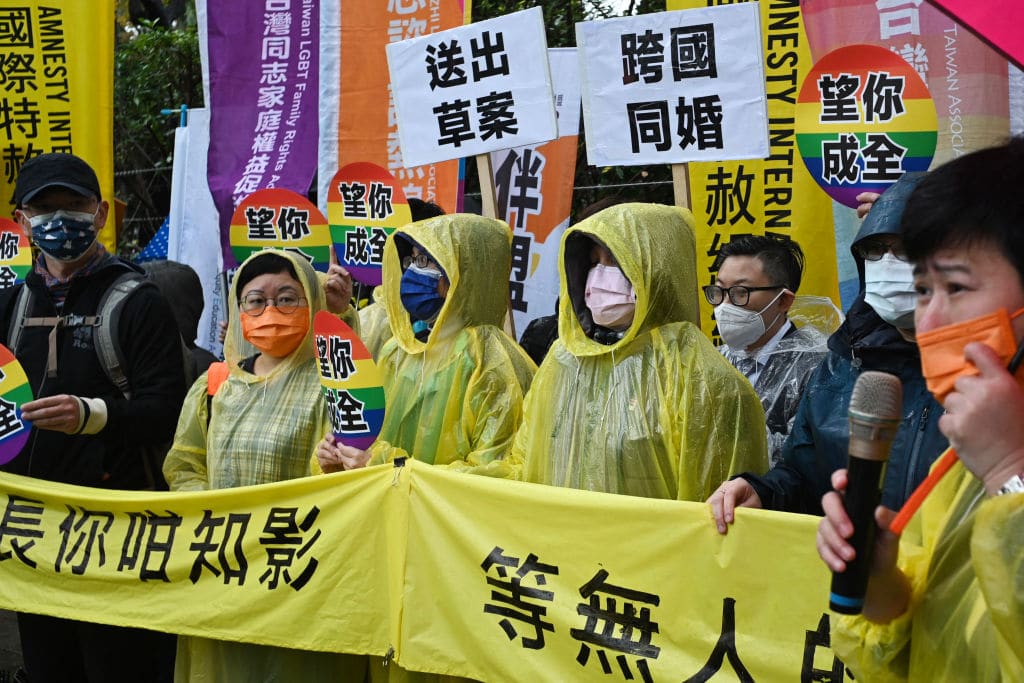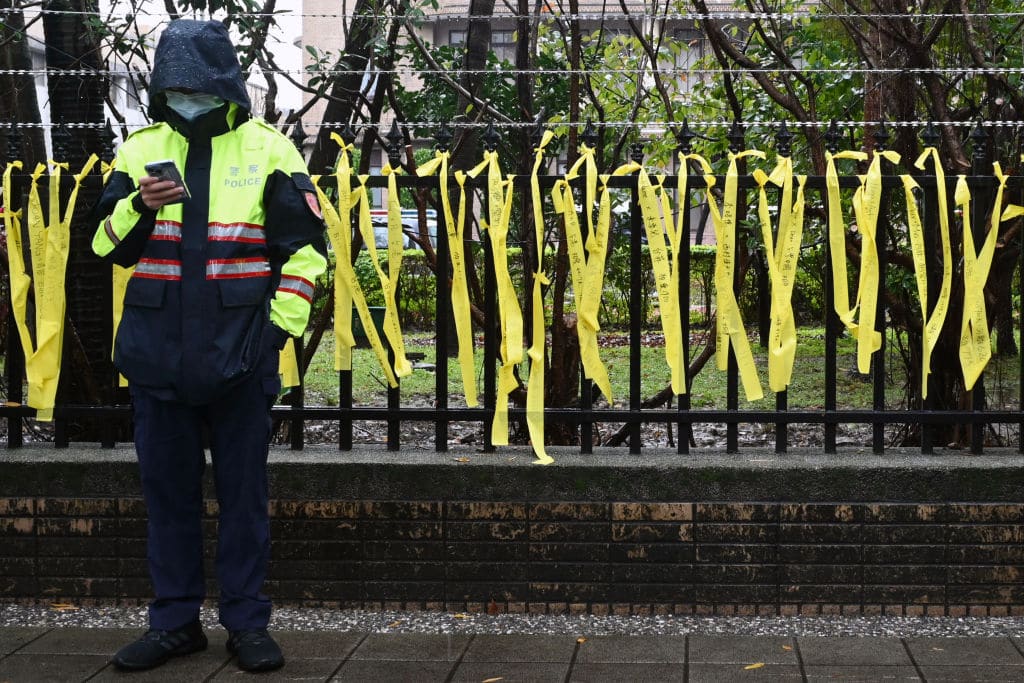Taiwan urged to give LGBT+ couples true marriage equality in impassioned Valentine’s Day protest

Joyce Chan (R) and Queenie Oyong (C) kneel down during the protest. (Sam Yeh/Getty)
LGBT+ couples in Taiwan gathered on Valentine’s Day to protest for true marriage equality.
While Taiwan is celebrated for being the first country to legalise same-sex marriage in Asia, LGBT+ campaigners have long pointed out that the law is far from perfect.
Taiwan allows citizens to enter into same-sex marriages with partners from other countries – but only if that country also recognises same-sex marriage.
It has left many couples forcibly separated. Andrew Chuang, one of the protesters, told AFP he and his Japanese partner have been forced to endure a two-year long separation.
Also speaking to AFP, Taiwanese resident Joyce Chan explained her worry that she could be indefinitely seperated from her partner, Queenie Oyong, who is originally from the Phillipines and staying in Taiwan on a student visa. They fear that if Queenie returns to the Phillipines, where same-sex marriage has not been legalised, it could prove impossible for them to be together again.
“We don’t just want to be each other’s Valentines – we want to become a real family,” Queenie told the outlet.

LGBT+ activists display placards and banners during a protest to call on the Taiwan government to approve gay marriage with foreign partner. (Sam Yeh/Getty)

A policeman stands next to a fence after same-sex activists tied yellow ribbons to it.
(Sam Yeh/Getty)
So far, Taiwan’s courts have responded to individual challenges to this law on a case by case basis. In order for such challenges to be considered, both partners are expected to be present in court. This has been particularly difficult for couples during the pandemic, as Taiwan’s strict border controls forbid entry into the country for the majority of foreign visitors.
During the protest on Monday (14 February), LGBT+ activists tied yellow ribbons around the gates the Executive Yuan building. The names and nationalities of couples who have been seperated were written on the ribbons, as well as the length of time they have been seperated for.
According to Professor Suzuki Ken, a legal expert and LGBT+ advocate, homophobic attitudes led to the postponement of action that would address the issue around nationality.
Speaking to NHK, he explained that opponents of gay marriage in Taiwan believed that “if the law was repealed, homosexuals would flood into Taiwan, turning Taiwan into a gay island”.
As of 2022, three couples have successfully won their cases and been allowed to marry a foreign partner from a country where same-sex marriage is not legalised.

